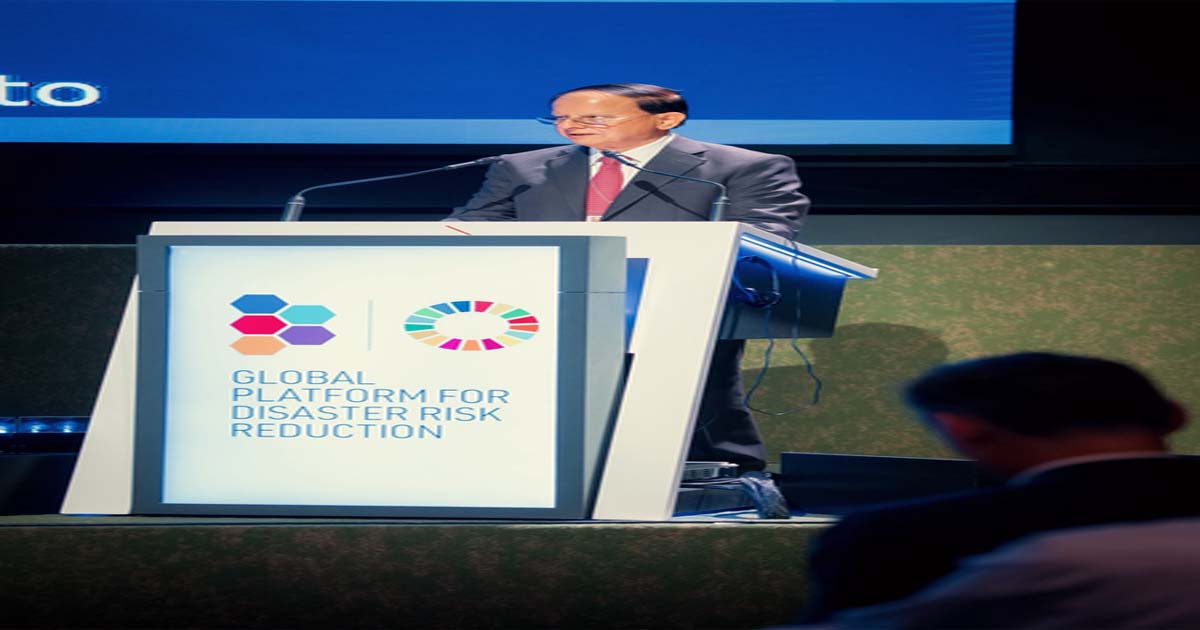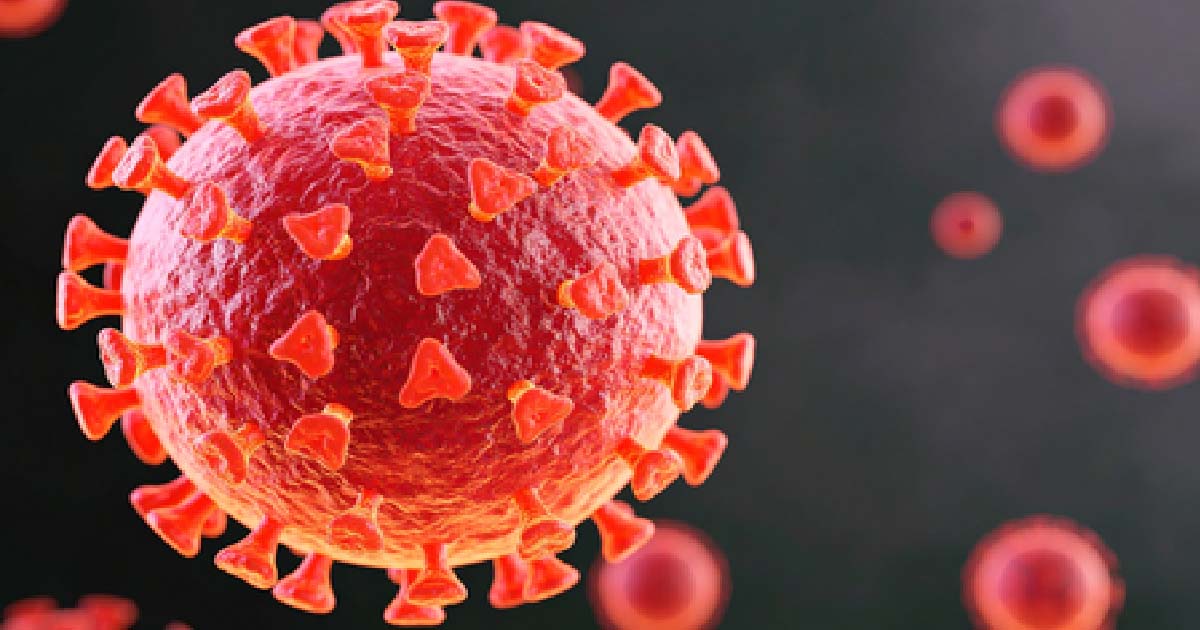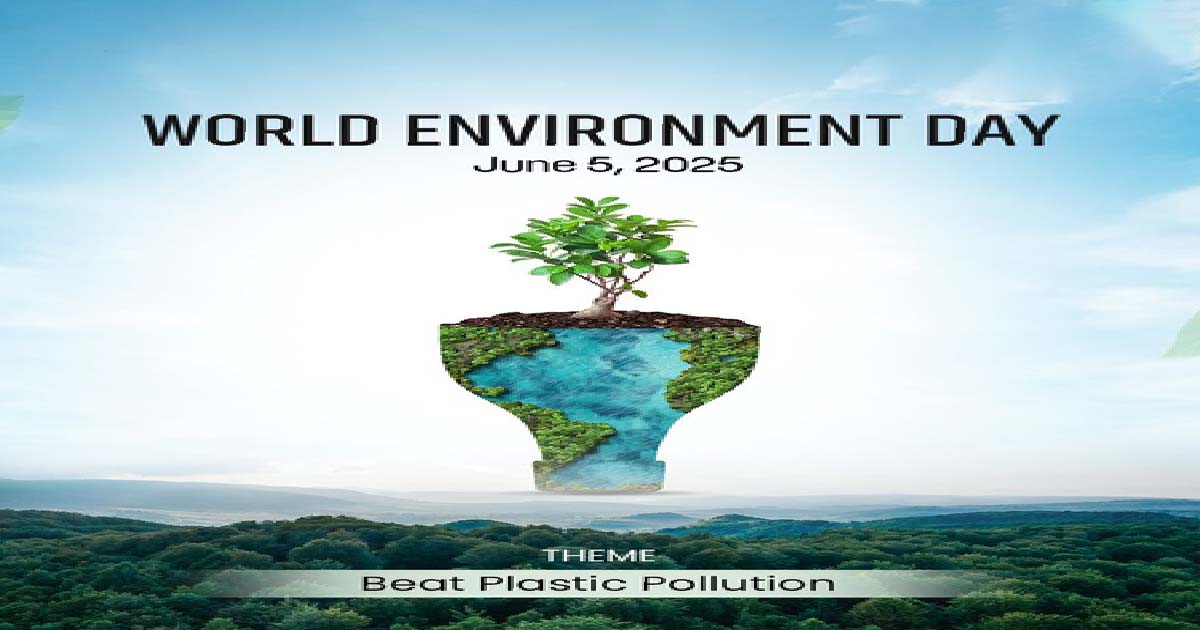health
Maha govt sets up Task Force after two HMPV cases in Nagpur

Mumbai, Jan 7: Two cases of Human metapneumovirus (HMPV) were detected in Maharashtra’s Nagpur on Tuesday, said officials here, adding that both are children and their condition was stable.
The two girls, aged 13 and 7, had shown the symptoms. According to the state public health department sources, after two days of continuous fever, these girls undertook tests in a private lab and tested positive. They were treated at home and their condition was stable.
Taking serious note, the state government has established a Task Force headed by the JJ Hospital Dean Dr Pallavi Saple to craft standard operating procedure (SOP) and decide on future course of action.
“Both these girls had cough and fever, their samples have been sent to NIV as they had slightly different symptoms. Both the children did not need to be admitted to the hospital and both the patients have recovered,” said sources.
“Parents don’t need to worry, this virus is not like Corona. It is mild,” said Superintendent of Government Medical and Hospital in Nagpur Dr Avinash Gawande. However, he suggested that children should wear masks.
Maharashtra Health Minister Prakash Abitkar called an urgent meeting of the department regarding the HMPV virus. It is reported that Union Minister of State for Health Prataprao Jadhav will also be present in this meeting. The minister has urged the people not to panic.
The medical education commissioner, Rajiv Nivatkar, held a virtual meeting with the Deans of government medical colleges to review their preparedness to tackle HMPV patients and briefed them about the measures to be taken.
The BrihanMumbai Municipal Corporation (BMC) has gone into an alert mode as special wards have been set up to treat HMPV patients.
Chief Minister Devendra Fadnavis on Monday said, “There is no reason to fear the HMPV virus. According to preliminary information, this virus is not new, this virus was prevalent earlier also. It seems that this virus is making a comeback once again. The regulations in this regard will be announced. The Union Health Ministry has decided to inform the states. Do not give fictitious information in this regard. Only the official information that comes should be given.”
The state health department has issued an advisory asking the district administration to keep a close vigil while stepping up surveillance of patients with cold and cough.
The Health Department Director Dr Nitin Ambadekar said, ‘Human metapneumovirus (HMPV) causes respiratory infections. This virus was first detected in the Netherlands in 2001. It is a common respiratory virus that causes infections in the upper respiratory tract. It is a seasonal epidemic and occurs in winter and early summer, like the flu. With the increased risk of HMPV, the Health Department has analyzed the respiratory infection statistics in the state. There was no increase in respiratory infections in the state in December 2024 compared to 2023. As a precautionary measure, the Health Department has said that citizens should take precautions to protect themselves from respiratory infections, he said. The department has also released dos and don’ts to be followed by the citizens.”
health
India takes lead in extreme heat risk management under PM Modi’s leadership

New Delhi, June 7: India has taken a proactive and forward-thinking approach to extreme heat risk management under the leadership of Prime Minister Narendra Modi, said Dr PK Mishra, Principal Secretary to the Prime Minister.
Delivering the keynote address during the Special Session on Extreme Heat Risk Governance in Geneva, he underlined that rising temperatures posing a systemic risk to public health, economic stability, and ecological resilience.
“India welcomes the United Nations Office for Disaster Risk Reduction’s (UNDRR) initiative to advance the Common Framework for Extreme Heat Risk Governance as a platform for shared learning, guidance, and collaboration,” he told the gathering, according to a Prime Minister’s Office (PMO) statement on Saturday.
Dr Mishra pointed out that India has moved beyond disaster response toward integrated preparedness and mitigation strategies. Since 2016, the National Disaster Management Authority (NDMA) has developed comprehensive national guidelines on heatwave management, revised in 2019, which laid the foundation for decentralised Heat Action Plans (HAPs).
He acknowledged the pioneering ‘Ahmedabad Heat Action Plan’, which demonstrated how early warnings, inter-agency coordination, and community outreach can save lives.
“Over 250 cities and districts across 23 heat-prone states have operational Heat Action Plans, supported by NDMA’s advisory, technical, and institutional mechanisms”, said the Principal Secretary, underscoring that strengthened surveillance, hospital readiness, and awareness campaigns have significantly reduced heatwave-related mortality.
India’s approach is whole-of-government and whole-of-society, engaging ministries from health, agriculture, urban development, labour, power, water, education, and infrastructure.
“Extreme heat deeply impacts communities, and India has actively incorporated traditional wisdom and local experiences into its response”, said Dr Mishra.
He noted that schools have become catalysts for behavioural change, educating children about climate resilience. He also emphasised that hospitals and primary health centres must be strengthened to ensure swift and effective emergency responses.
Outlining India’s transition from a preparedness-only approach to long-term heatwave mitigation, including cool roof technologies, passive cooling centres, urban greening, and the revival of traditional water bodies, Mishra affirmed that India is integrating Urban Heat Island (UHI) assessments into city planning.
He called for a global focus on developing a localised heat-humidity index based on real-time data to enhance early warning systems, advancing building technologies and passive cooling innovations that are affordable and culturally appropriate and addressing equity concerns, as extreme heat disproportionately affects women, outdoor workers, the elderly, and children.
health
Study shows how Covid virus shields itself during replication

New Delhi, June 6: US researchers have identified a mechanism that SARS-CoV-2 — the virus that causes Covid-19 — uses to protect itself inside the body as it works to replicate and infect more cells.
Without this protective mechanism, viral infection is dramatically reduced, said the team from the Texas Biomedical Research Institute and the University of Chicago.
The finding, published in the journal Nature Communications, not only provides a potential target for new Covid therapies but also offers insights that could inform future vaccine and antiviral development.
The study builds on earlier work from Texas Biomed that identified ORF3a, a type of viral protein most important for the virus’s pathogenicity, or ability to cause disease.
Specifically, the team found that SARS-CoV-2 ORF3a appears to play a vital role in protecting structural proteins, most notably the spike protein that facilitates spread into other cells, as they are assembled on the surface of viral particles.
It does this by driving the formation of a dense group of proteins that surround the spike protein and provide protection while in transit, much like security detail protecting a person or an armoured vehicle carrying cash to the bank, the researcher said.
Jueqi Chen, Assistant Professor at the University of Chicago, termed these protective complexes “3a dense bodies” or 3DBs for short.
It appears that 3DBs help prevent the spike protein from being cut into smaller components.
When ORF3a is missing, these 3DBs fail to form, and the spike protein often arrives damaged, severely impairing the nascent virus’s ability to infect new cells, the expert said.
“ORF3a could therefore be a good target for drugs to block the virus,” said Luis Martinez-Sobrido, Professor at Texas Biomed.
“This discovery could also be instrumental for vaccine development, as we illustrated previously,” Martinez-Sobrido added.
health
World Environment Day: Ministers call to stop plastic pollution, embrace sustainability

New Delhi, June 5: Union Ministers on World Environment Day on Thursday urged citizens to put an end to plastic pollution and embrace sustainability while also planting more trees for a greener and cleaner future.
World Environment Day is observed every year on June 5. The theme this year, ‘Beat Plastic Pollution’ aims to end plastic pollution.
“As we mark #EnvironmentDay today, let’s reaffirm our commitment to protecting our planet and ensuring sustainability for all living beings. Always remember nature protects when protected,” said Bhupender Yadav, Union Minister for Environment, Forest and Climate Change (MoEFCC), in a post on social media platform X.
“On World Environment Day, let us renew our commitment to protect the planet by planting more trees, reducing pollution, conserving resources, and embracing sustainability. Together, our small steps can create a greener, healthier, and more hopeful future for all,” added Pralhad Joshi, Union Minister of Consumer Affairs.
Globally, an estimated 11 million tonnes of plastic waste leak into aquatic ecosystems each year, while microplastics accumulate in the soil from sewage and landfills, due to the use of plastics in agricultural products.
Jitendra Singh, Union Minister of State (Independent Charge) for Science and Technology stated that India “reiterates its strong commitment to beat plastic pollution through proactive policies, sustainable practices and mass awareness. Together, let’s restore ecosystems, conserve biodiversity, and build a greener, cleaner future”.
“Let us take a pledge on this Environment Day – stop plastic pollution, live in harmony with nature, and create a greener, cleaner, and safer earth for future generations,” added Kirti Vardhan Singh, Union Minister of State for MoEFCC.
Besides choking the planet, plastic pollution permeates even our bodies in the form of microplastics and poses several health risks.
“Plastic pollution is choking our planet – harming ecosystems, well-being, and the climate. Plastic waste clogs rivers, pollutes the ocean, and endangers wildlife,” said UN Secretary-General António Guterres.
“And as it breaks down into smaller and smaller parts, it infiltrates every corner of Earth: from the top of Mount Everest to the depths of the ocean; from human brains; to human breastmilk,” he added, calling for a movement for urgent change.
-

 Crime3 years ago
Crime3 years agoClass 10 student jumps to death in Jaipur
-

 Maharashtra1 year ago
Maharashtra1 year agoMumbai Local Train Update: Central Railway’s New Timetable Comes Into Effect; Check Full List Of Revised Timings & Stations
-

 Maharashtra1 year ago
Maharashtra1 year agoMumbai To Go Toll-Free Tonight! Maharashtra Govt Announces Complete Toll Waiver For Light Motor Vehicles At All 5 Entry Points Of City
-

 Maharashtra1 year ago
Maharashtra1 year agoFalse photo of Imtiaz Jaleel’s rally, exposing the fooling conspiracy
-

 National News1 year ago
National News1 year agoMinistry of Railways rolls out Special Drive 4.0 with focus on digitisation, cleanliness, inclusiveness and grievance redressal
-

 Maharashtra1 year ago
Maharashtra1 year agoMaharashtra Elections 2024: Mumbai Metro & BEST Services Extended Till Midnight On Voting Day
-

 National News1 year ago
National News1 year agoJ&K: 4 Jawans Killed, 28 Injured After Bus Carrying BSF Personnel For Poll Duty Falls Into Gorge In Budgam; Terrifying Visuals Surface
-

 Crime1 year ago
Crime1 year agoBaba Siddique Murder: Mumbai Police Unable To Get Lawrence Bishnoi Custody Due To Home Ministry Order, Says Report












